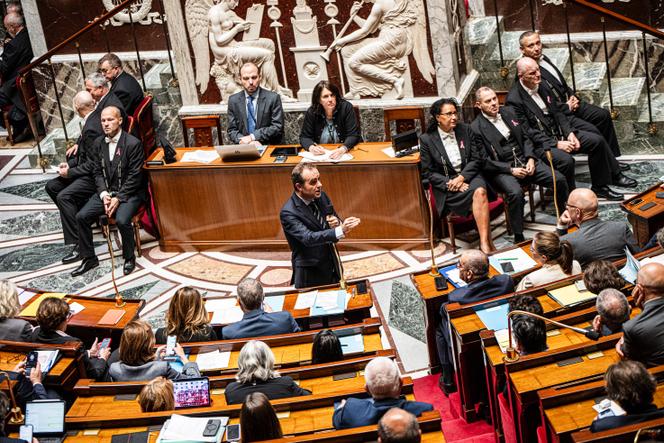On Monday, October 20, the National Assembly’s Finance Committee concluded its first day of examining the state budget, not hesitating to amend the government’s draft, sometimes at the initiative of the ruling coalition’s own groups. By Monday evening, MPs from both the government camp and the National Rally had voted to reject the Zucman tax.
These debates, which will continue from Tuesday morning until Wednesday evening, serve as a warm-up before the session in the main chamber starts on Friday, with Prime Minister Sébastien Lecornu in attendance. As is always the case for finance bills, MPs will then start again from the government’s original text.
The amendment was supported by all four left-wing groups and proposes a minimum tax of 2% on the wealth—including business assets—of the 1,800 taxpayers owning at least €100 million. They described this as the “minimum standard for tax justice.” “It would be unacceptable to ask retirees, the middle class, the sick, the unemployed (…) to contribute while exempting the wealthiest,” the representatives stated.
Conversely, the government camp attacked the measure, which the Prime Minister has stated he opposes. The General Rapporteur, for his part, sees it as “a deterrent for new entrepreneurs” wanting to set up in France, which would “primarily destroy businesses” that “take years to become profitable.”
In total, the committee must examine around 1,400 amendments over three days for the revenue section of the finance bill. The debates will primarily gauge the balance of power on the various provisions. The plenary session review of the text begins on Friday, with a final vote scheduled for November 4. The timeline is particularly tight, and a constitutional sword of Damocles hangs over the parliamentarians: they have a 70-day constitutional window—until December 23—to pass the budget, with enactment required before December 31.
MPs approved the extension of the CDHR
If the deadline is missed, the budget could be adopted by special executive order or a special law. Meanwhile, the Social Affairs Committee will begin examining the draft Social Security Financing Bill (PLFSS) on Thursday, following hearings with ministers on Tuesday.
With the public deficit expected to reach 5.4% of GDP in 2025, the government is aiming for an overall effort of around thirty billion euros for 2026, split between new levies (€14 billion) and spending cuts (€17 billion), to reduce the public deficit to 4.7% of GDP. The government has indicated it would accept relaxing this target to a level “below 5%” to facilitate compromises.
Early Monday morning, MPs approved the extension of the Differential Contribution for High Incomes (CDHR), introduced in 2025, which sets a minimum tax rate of 20% for households with annual incomes exceeding €250,000. They strengthened the measure by passing an amendment to extend this CDHR until the deficit falls back below the
